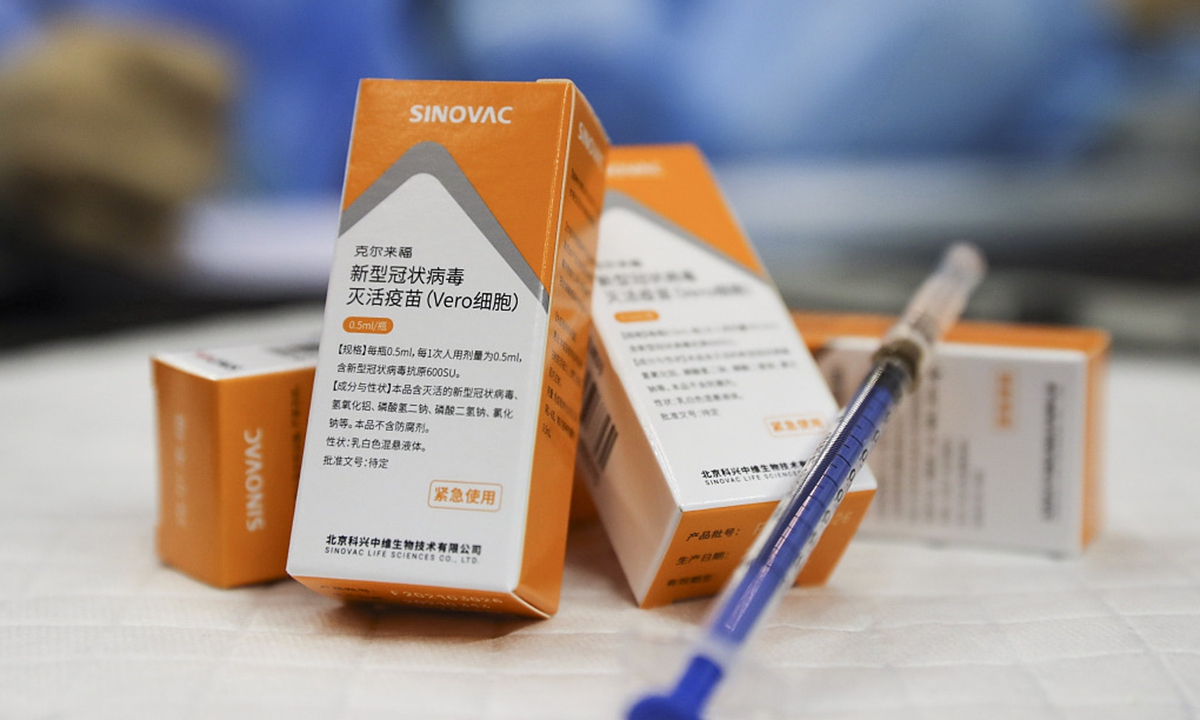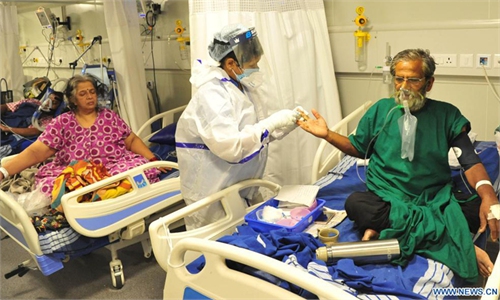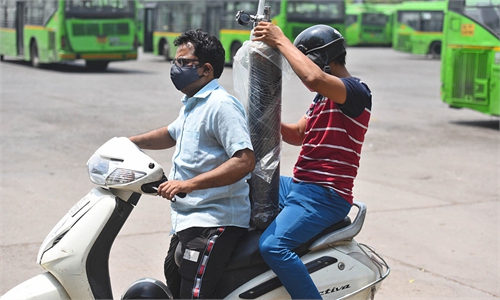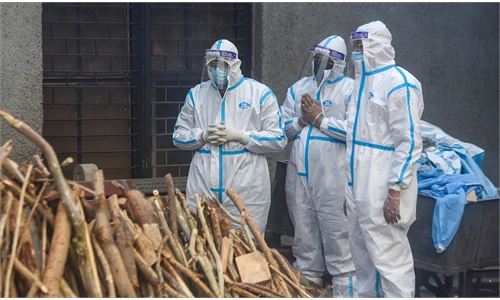
Sinovac COVID-19 vaccine. Photo: VCG
Amid global concerns over the variant found in India that appears to be of high infectiousness and transmissibility, Chinese experts said Chinese vaccine manufacturers will be able to produce suitable vaccines against the variant in about two months.
The comment came as Chinese manufacturer Sinovac, whose COVID-19 vaccine is being used in more than 30 countries, disclosed to Ta Kung Pao newspaper that the company is studying different mutations and an updated vaccine suitable for these mutations could be produced in 10 weeks at the quickest after the company cultivates the mutated strain successfully.
Liu Peicheng, the spokesperson of Sinovac, told media on Tuesday in a Beijing-based manufacturing factory that the company is researching the different mutations of the novel coronavirus, a vital step before updated vaccines come into production.
With a mature vaccine pipeline in place, future production of COVID-19 vaccine will be much faster, Liu said, noting that Sinovac has been using its vaccine on a large scale in Brazil, Chile and in areas where it has found mutated strains, and has seen good protection against the virus.
Experts reached by Global Times said that Sinovac's claimed speed is not an exaggeration. After getting the mutant strain, manufacturers only need to replace the seed virus in the fermenter, without making any adjustment in other procedures.
The upgrade can be finished in two months, with an animal trial or a phase I human trial, and that's enough for emergency use, Tao Lina, a Shanghai-based vaccine expert, told the Global Times on Wednesday.
The original version of inactivated vaccine may offer slightly less protection against the virus with mutant strains, but a third dose of updated vaccine on top of the previous shots will provide much greater protection, Tao said.
Chinese experts said that insufficient evidence has been found to show that the B.1.617 variant found in India and classified by the WHO as "a variant of concern" could make current vaccines less effective. Experts noted that as the epidemic in India is still unstable and the mutation could continue to mutate, it is not a proper time to select and cultivate the strain for vaccines.
Yang Zhanqiu, deputy director of the pathogen biology department at Wuhan University, told the Global Times on Wednesday that deciding a strain of virus to produce an inactivated vaccine is a complex process, which usually is conducted at the end of an epidemic, to select the strain with the greatest impact.
But experts tried to ease public concern, saying that current vaccines are still able to provide protection against most mutations despite some reduction in efficacy. Vaccine research and development is still getting ahead of the virus mutation, they said.
They said that Sinovac's updated vaccine may elevate their status in the highly competitive international vaccine market with mRNA vaccines dominating the West as they can update the vaccines quicker due to mature technology, while more tests and research are needed to update mRNA vaccines as the technology has rarely been applied in the real world before the COVID-19 pandemic.




